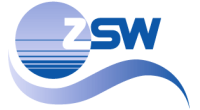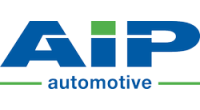FDFC2023: Science and technology developments towards the industrialisation
The Zentrum für Sonnenenergie- und Wasserstoff-Forschung Baden-Württemberg (ZSW) is organising the 9th International Conference on Fundamentals & Development of Fuel Cells FDFC2023, in Ulm, Germany, from 25-27 September 2023.
The main topics at FDFC2023 will address fuel cells and electrolysers, ranging from the fundamentals of electrochemistry to material developments, stack architecture and systems operation. The conference will provide in-depth description about the recent advances at single cell and stack levels, system development, as well as cell diagnosis, power processing and control, characterisation of membrane electrode assemblies, etc., hence covering all the aspects of fuel cell and electrolyzer technologies.
Besides presenting scientific and technical advances, the conference is designed to initiate instigate insightful discussions and networking between scientists, laboratories, research institutes, decision makers, fuel cells suppliers, component manufacturers and industrial end-users. There will be space available for exhibitions during the conference, giving an excellent opportunity for material and hardware suppliers, as well as manufacturers, to advertise their products and to present them to future users.
Call for communications
Symposium 1: Proton Exchange Membrane systems and components
This symposium will cover topics, ranging from material components to stacks and systems, of electrolyzers and fuel cells making use of polymeric proton exchange membranes. Contributors will present recent advances in terms of electrode active material developments, electrode architecture and compositional characteristics, novel ionomers and membranes targeting higher performances, lower costs and/or longer endurance of the cells. At the stack system level, the presentations will focus on progresses regarding to the durability of the performances, the state-of-health diagnosis, power processing and stack management (operating conditions, break-in procedures, balance of plant, etc.).
Symposium 2: Solid Oxide systems and components
This symposium will cover topics, ranging from material components to stacks and systems, of electrolyzers and fuel cells making use of solid oxide electrolytes. Contributors will present recent advances in terms of electrode active material developments, electrode architecture and compositional characteristics, novel oxide electrolytes targeting higher performances, lower costs and/or longer endurance of the cells. At the stack system level, the presentations will focus on progresses regarding to the durability of the performances, the state-of-health diagnosis, power processing and stack management (operating conditions, break-in procedures, balance of plant, etc.).
Symposium 3: Alkaline/anion exchange membrane systems and components
This symposium will cover topics, ranging from material components to stacks and systems, of electrolyzers and fuel cells making use of alkaline electrolytes, liquid or in the form of polymeric anionic membranes. Contributors will present recent advances in terms of electrode active material developments, electrode architecture and compositional characteristics, novel ionomers and membranes targeting higher performances, lower costs and/or longer endurance of the cells. At the stack system level, the presentations will focus on progresses regarding to the durability of the performances, the state-of-health diagnosis, power processing and stack management (operating conditions, break-in procedures, balance of plant, etc.).
Symposium 4: Hydrogen as fuel
This symposium will cover all the topics related to hydrogen as secondary energy carrier: from methods development for the hydrogen quality characterisation and monitoring to the distribution of hydrogen towards the end user (hydrogen station, dispenser technology, fuelling protocols, transport of hydrogen, large scale distribution with pipeline, etc.)
Symposium 5: Cross-cutting topic focusing on characterizations and modelling methods
This symposium will focus on the recent advances in developing physical-chemical methods for the characterization of materials and cell behaviours, and about the computational modelling of cells, stacks and cell components. This symposium is independent of the system under investigation (Proton Exchange Membrane, Solid Oxide or Alkaline) in order to stimulate exchanges and discussions between the communities.
Symposium 6: Recent results track
This symposium will cover conceptual aspects, fundamentals, and applications of all FDFC areas that are not compatible with the topical symposia. This symposium will provide a forum for researchers and graduate students to present their recent advanced research results of general interests to the FDFC meeting attendees. Topics such as regenerative fuel cells, direct alcohol fuel cells, alternative approaches for gas diffusion electrodes, eco-design, recycling, etc. as examples, will be covered by this symposium. The purpose of this symposium is to foster and promote work in both electrochemical sciences and technologies, and to stimulate researcher and student interests and participation in FDFC.






